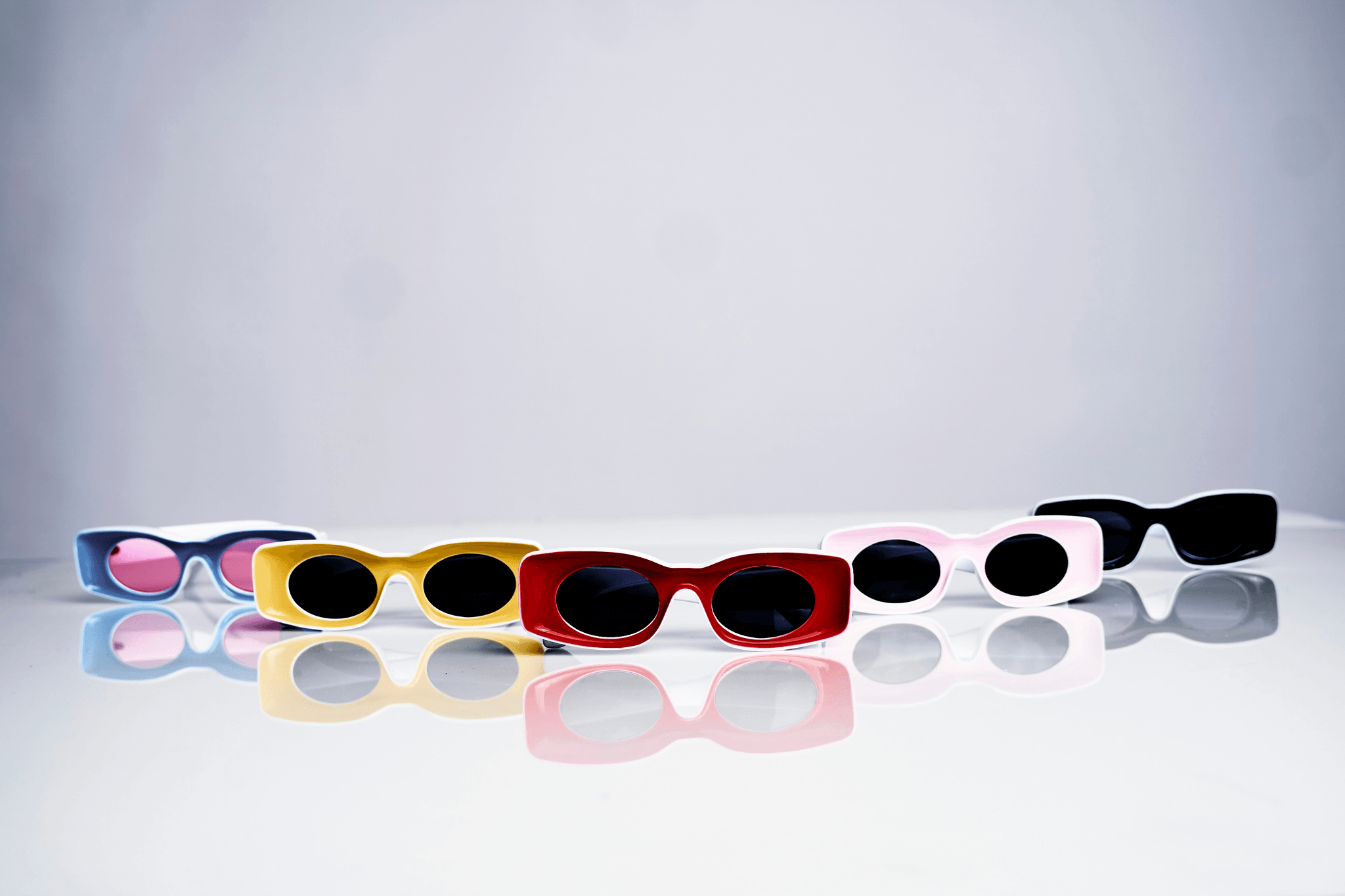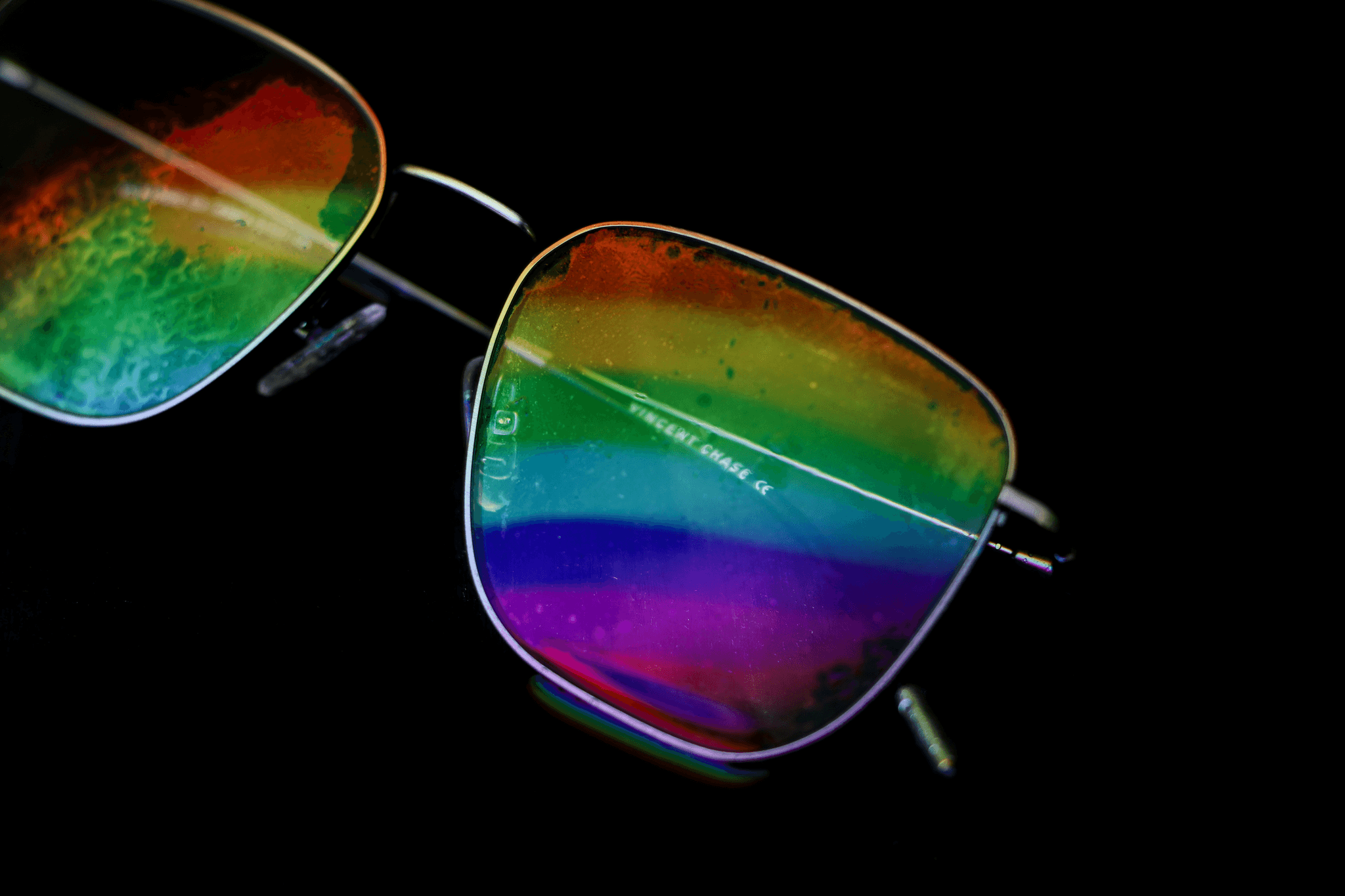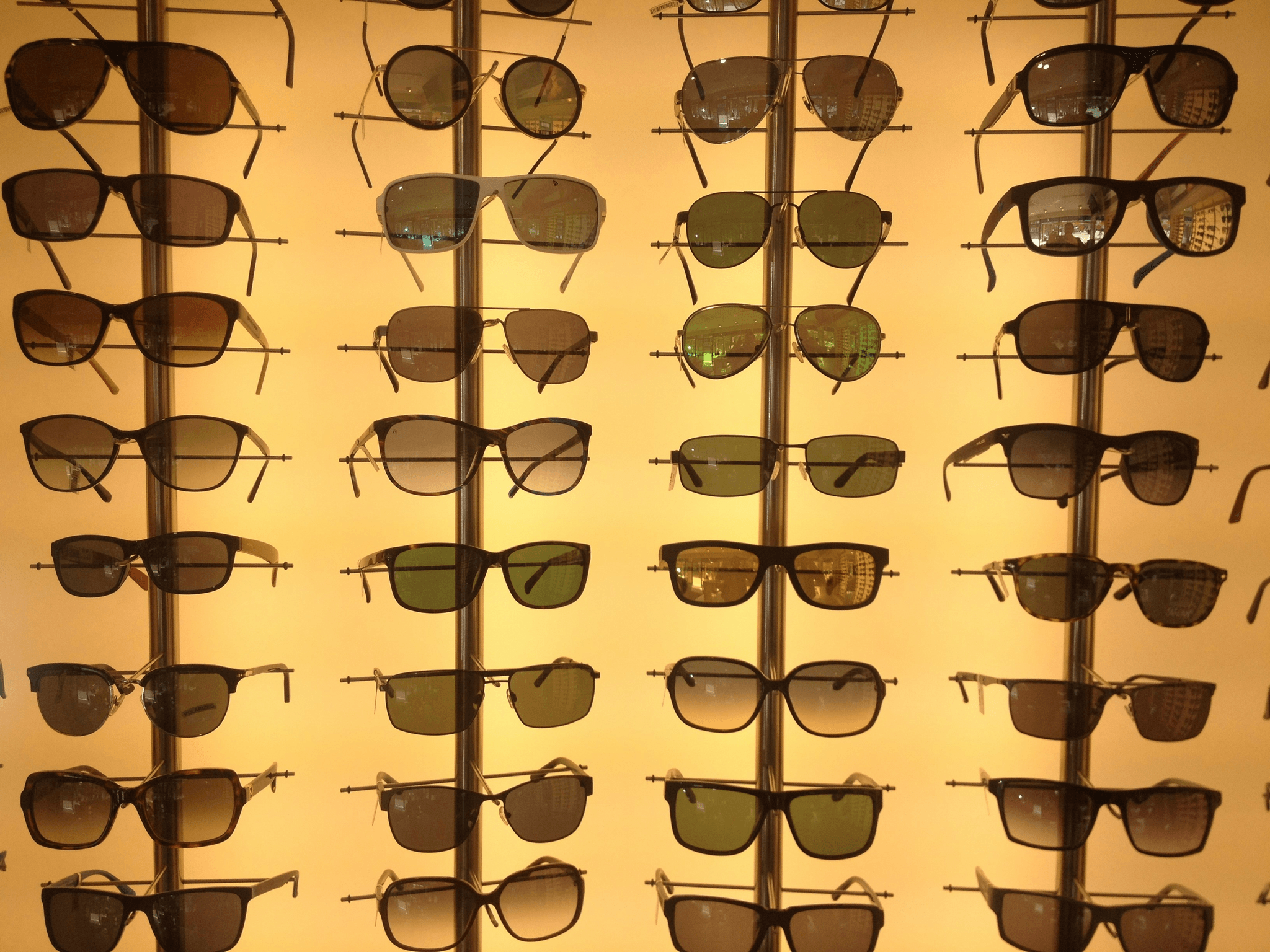Introduction

Exploring the Best Materials for Sunglasses
What are the best sunglasses materials? This question is paramount when selecting a pair that not only looks great but also stands up to daily wear and tear. From plastic to metal, each material comes with its own set of advantages and drawbacks that can significantly impact your experience as a wearer.
Why Material Choice Matters for Eyewear
The material choice in eyewear is critical because it influences everything from weight and comfort to durability and protection levels. For instance, knowing what material should sunglasses be made from can help ensure they provide adequate UV protection while remaining lightweight enough for all-day wear. Moreover, understanding which sunglasses are best—whether UV or polarized—can elevate your eyewear game beyond mere aesthetics.
Defining Quality in Sunglasses Manufacturing
Quality in sunglasses manufacturing goes hand-in-hand with material selection; after all, even the fanciest design can't compensate for subpar materials. The best material for sunglasses frames should not only look good but also withstand environmental factors like heat and moisture without warping or breaking down over time. By examining the sunglasses lens material sheet alongside frame choices like Polycarbonate Sunglasses, you can better appreciate what makes a high-quality pair worth investing in.
Understanding Sunglasses Materials

Overview of Common Materials
Sunglasses frames are typically made from a variety of materials including plastic, metal, and more recently, sustainable options like bamboo or recycled materials. Plastic frames are lightweight and often come in a plethora of colors and styles, making them a popular choice for fashion-forward individuals. Meanwhile, metal frames offer a sleek look that’s often associated with higher-end designs but can be heavier than their plastic counterparts.
Pros and Cons of Each Material
The best material for sunglasses depends on your specific needs and preferences. Plastic frames are generally more affordable and resistant to shattering; however, they may not be as durable over time compared to metal options which provide sturdiness but can be prone to corrosion if not properly cared for. Additionally, some people might find plastic less comfortable during extended wear due to its tendency to become warm in direct sunlight.
Material Impact on Durability
Durability is a key factor when considering which sunglasses are best for you—especially if you lead an active lifestyle or frequently travel outdoors. Generally speaking, polycarbonate sunglasses lenses rank high in impact resistance while also being lighter than glass lenses; this makes them ideal for sports enthusiasts or anyone needing sturdy eyewear. On the other hand, while metal frames can offer greater longevity than plastic ones under normal conditions, they may not withstand extreme impacts as well as some plastics.
Best Material for Sunglasses Frames

Comparing Plastic and Metal Frames
Plastic frames are often lightweight, flexible, and available in a plethora of colors and styles, making them a popular choice among fashion-forward individuals. They tend to be more affordable than their metal counterparts, which can be enticing for those on a budget. However, while plastic is versatile, it may not always provide the same level of durability as metal frames, especially under extreme conditions.
On the other hand, metal frames offer superior strength and longevity; they’re less likely to warp or break over time compared to plastic options. Metal sunglasses often feature adjustable nose pads that enhance comfort and fit—important factors when considering what material should sunglasses be made from. While they can be pricier than plastic frames, many find that investing in quality metal frames pays off in the long run.
Ultimately, when pondering which sunglasses are best for your needs—plastic or metal—consider your lifestyle: do you prioritize style over durability or vice versa? Understanding these differences will help you determine what is the best material for sunglasses frame that suits your personal preferences.
Introducing Daposi's Premium Materials
Daposi stands out in the eyewear market by utilizing premium materials designed specifically for quality and performance. Their innovative approach combines both plastic and metal elements to create stylish yet durable frames that cater to varied tastes. By focusing on crafting high-quality products with an eye toward sustainability, Daposi ensures their offerings meet modern demands without compromising on style.
For those asking what are the best sunglasses materials available today—Daposi's selection includes advanced composites that enhance flexibility while maintaining strength. This means you can enjoy fashionable designs without worrying about breakage during everyday wear or outdoor activities. With Daposi’s commitment to excellence in materials engineering, you’re guaranteed a pair of shades built to last.
When searching for the best material for sunglasses men’s collections specifically tailored for active lifestyles or fashion statements alike—Daposi provides an array of options that don’t skimp on either function or flair.
Comfort and Fit: What to Look For
Comfort is paramount when selecting any eyewear; poorly fitting sunglasses can lead to discomfort during extended wear times. When evaluating comfort levels in different materials like those found on a sunglasses lens material sheet from manufacturers like Daposi, pay attention to features such as adjustable nose pads or spring hinges that allow better fit adjustments based on face shapes.
Additionally, consider how lightweight certain materials feel against your skin; heavier frames may cause discomfort over time despite their aesthetic appeal! Remember that even if you find an attractive frame design appealing at first glance—it needs proper functionality too!
Ultimately choosing what material should sunglasses be crafted from involves balancing style with comfort; after all—the perfect pair enhances your look while keeping discomfort at bay! So before purchasing any new shades ensure they tick all boxes related not just functionality but also personal taste preferences!
Sunglasses Lens Material Breakdown

Types of Lens Materials Available
There are several types of lens materials available on the market today, each with its unique attributes. Common choices include glass, plastic (CR-39), polycarbonate, and Trivex. Each material has its pros and cons; for example, while glass lenses offer superior optical clarity, they can be heavier and more prone to shattering compared to polycarbonate sunglasses.
Plastic lenses are lightweight but may scratch more easily than other options. Polycarbonate is often touted as one of the best materials for sunglasses due to its impact resistance and lightweight nature. Lastly, Trivex combines some of the best qualities from both polycarbonate and CR-39, making it a strong contender in this category.
Advantages of Polycarbonate Sunglasses
Polycarbonate sunglasses have become increasingly popular for good reason; they pack a punch when it comes to benefits! First off, polycarbonate is incredibly lightweight—perfect for those long days under the sun when you want comfort without sacrificing style. Additionally, this material boasts excellent impact resistance; it's nearly unbreakable compared to other lens types.
Another significant advantage is that polycarbonate lenses provide 100% UV protection naturally without additional coatings needed—making them a top choice if you're wondering what material should sunglasses be? They also come with scratch-resistant coatings that enhance their durability further—definitely something to consider when searching for which sunglasses are best for your active lifestyle!
Understanding the Sunglasses Lens Material Sheet
Navigating through a sunglasses lens material sheet can feel like reading an alien language if you're not familiar with it! This sheet typically outlines key features such as UV protection levels, polarization options, weight specifications, and scratch resistance ratings—all crucial factors in determining which pair suits you best.
When assessing these features, keep in mind what matters most: Are you primarily looking for UV protection or polarized lenses? Understanding these distinctions can help clarify which is better suited for your needs—UV or polarized? Moreover, knowing how each material performs under different conditions will empower you in making an informed decision about purchasing men's eyewear that meets all your expectations.
UV Protection vs Polarization

What is the Best Material for Sunglasses Lens?
The best material for sunglasses lenses often boils down to polycarbonate or glass. Polycarbonate sunglasses are lightweight, impact-resistant, and provide excellent UV protection, making them a popular choice among outdoor enthusiasts. On the other hand, glass lenses offer superior optical clarity but can be heavier and more prone to shattering; thus, they might not be ideal for high-impact activities.
When considering What are the best sunglasses materials?, it's also important to evaluate your lifestyle needs. If you’re seeking durability combined with comfort, polycarbonate might just take the crown as the best material for sunglasses lenses. Ultimately, knowing which lens material suits your activities will guide you toward a more informed purchase.
Comparing UV and Polarized Sunglasses
Now that we've established what makes a good lens material let's dive into how UV protection stacks up against polarization—two terms often thrown around in sunglasses shopping. UV protection shields your eyes from harmful ultraviolet rays that can cause cataracts and other eye issues over time, while polarized lenses reduce glare from reflective surfaces like water or roads. So which sunglasses are best? It depends on your needs!
If you're spending a lot of time outdoors near water or snow, polarized glasses may be worth their weight in gold due to their ability to cut through glare effectively. However, if you're primarily concerned about long-term eye health in sunny environments, then focusing on good UV protection should be your priority when choosing what material should sunglasses be made of. Ideally, look for options that combine both features—after all, why settle for less?
Knowing Which Sunglasses are Best for You
Understanding these elements will help you determine which sunglasses are best suited to your lifestyle and preferences. For those who prioritize eye safety during outdoor adventures or sports activities, opt for polycarbonate frames with high-quality UV protection—this aligns with the idea of “best material for sunglasses men's” choices as well!
On top of that, consult a sunglasses lens material sheet when selecting frames; it provides valuable insights into various materials' properties including weight and durability factors which can influence comfort over extended wear times. By weighing these considerations thoughtfully against personal style preferences—because who says you can't look good while protecting those peepers?—you'll find an option that's both functional and fashionable.
Selecting the Right Sunglasses for Your Needs

Choosing the right sunglasses goes beyond just picking a stylish pair; it’s about finding the best material for sunglasses that fits your lifestyle and protects your eyes. With so many options available, understanding what materials work best can help you make an informed decision. Whether you're hitting the beach or driving through the city, knowing what are the best sunglasses materials will enhance both your comfort and eye protection.
Best Material for Sunglasses Men’s Choices
When it comes to men’s choices, several materials stand out as top contenders in sunglasses manufacturing. For frames, polycarbonate is often hailed as one of the best materials for sunglasses due to its lightweight nature and incredible durability. Metal frames also offer a sleek look and are often made from high-quality alloys, making them another excellent option when considering what material should sunglasses be.
The lens material is equally important; polycarbonate lenses are particularly popular among active individuals because they resist impact better than traditional glass lenses. When deciding which sunglasses are best for you, consider how these materials align with your daily activities and style preferences. Ultimately, selecting from these top choices ensures that you get both functionality and flair in one package.
Factors Influencing Your Sunglasses Purchase
Several factors influence your purchase of sunglasses beyond just aesthetics—comfort, fit, UV protection, and lens type all play significant roles in determining what is the best material for sunglasses frame or lens. The shape of your face may dictate whether plastic or metal frames suit you better; some people find plastic frames more comfortable while others prefer the sturdiness of metal ones. Additionally, think about whether you need polarized lenses to reduce glare or simply want UV protection to shield your eyes from harmful rays.
Your lifestyle also matters; if you're frequently outdoors or engaged in sports activities, polycarbonate sunglasses could be ideal due to their resilience against impacts and scratches. Don’t forget to consult a sunglasses lens material sheet when comparing options—it can provide insights into how different materials perform under various conditions! By weighing these factors carefully, you'll ensure that your choice aligns perfectly with both function and fashion.
Style Meets Function: A Final Consideration
In today’s world of eyewear fashion, style meets function like never before—but this doesn’t mean you should compromise on quality when selecting shades! The best material for sunglasses isn't solely about aesthetics; it also encompasses durability and protective features that keep your eyes safe while looking good. So whether you're sporting classic aviators or trendy oversized frames, make sure they’re crafted from high-quality materials that provide adequate UV protection without sacrificing comfort.
Remember that choosing between UV or polarized lenses can significantly affect how well you see on bright days—polarized lenses excel at reducing glare but might not always be necessary depending on where you'll wear them most often! So take time to evaluate which features matter most to you before making a final decision on which sunglasses are best suited for your needs. After all, investing in quality eyewear means investing in eye health—so go ahead and choose wisely!
Conclusion

In the world of sunglasses, material choice is paramount. From frames to lenses, understanding the best materials for sunglasses can significantly enhance your experience and protection. With options ranging from plastic to metal and various lens materials like polycarbonate, knowing what material should sunglasses be made from is essential for any savvy shopper.
Key Takeaways on Sunglasses Materials
When considering what are the best sunglasses materials, remember that each type comes with its own set of advantages and drawbacks. Plastic frames are lightweight and affordable, while metal frames offer durability and a sleek aesthetic; thus, determining what is the best material for sunglasses frame often boils down to personal preference. Additionally, lens materials like polycarbonate provide excellent impact resistance and UV protection—key factors in selecting the right eyewear.
The Role of Material in Eye Protection
The material used in your sunglasses plays a crucial role not just in style but also in eye safety. High-quality lenses can block harmful UV rays while enhancing visual clarity—this leads us to ponder which sunglasses are best: UV or polarized? Ultimately, investing in quality materials ensures that your eyes remain shielded from sun damage while enjoying those sunny days outdoors.
Choosing Quality with Daposi Sunglasses
For those seeking both style and functionality, Daposi offers some of the best material for sunglasses men's choices on the market today. Their premium materials ensure comfort without sacrificing durability or aesthetics—an ideal combination for anyone looking to make a statement while protecting their eyes. So when you’re out shopping for your next pair of shades, remember that quality matters; choose wisely!
